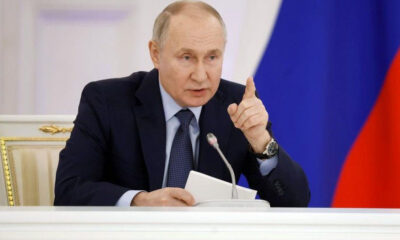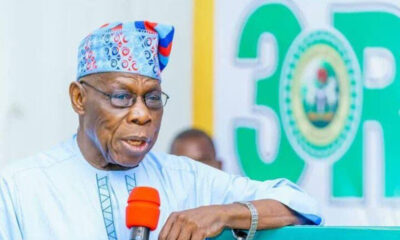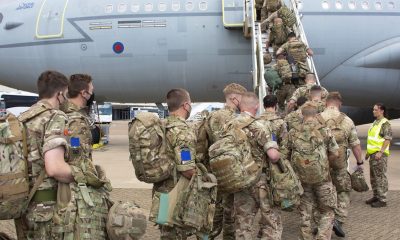International
Uproar as Ukraine seeks to enlist fighters from Africa

Nigeria, Senegal and Algeria have criticized Ukraine’s effort to recruit international fighters for its war with Russia. Analysts say those who have responded to the call need to reconsider.
Russia’s war on Ukraine is barely two weeks old but Ukraine is already attracting potential foreign fighters from as far away as Kenya.
“If Ukraine decides to pay me a very good amount of money, which I know I cannot earn here, I will definitely go there and fight,” Kimanzi Nashon, a student in the Kenyan capital Nairobi said.
“When we go there, and then the war ends before anything happens, I will come back to Kenya and be a millionaire,” said Nashon.
Nashon isn’t alone in harboring thoughts of being a hired fighter in Ukraine.
“If an opportunity presented itself for me to fight in Ukraine as a mercenary, I would be on my heels running there,” Beatrice Kaluki, who is unemployed, told DW.
“I would rather die on the front line in Ukraine knowing that my family would be compensated even after my death, rather than die in Kenya from depression because of the insane unemployment rate!”
READ ALSO:
- US to ban all Russian oil imports, reports say
- Court remands 2 men for allegedly defiling a minor
- Just in: Court sacks Governor Umahi, deputy over defection from PDP
- Reps to reconsider three bills affecting women
The 27-year-old said she believes other youths would run there [to Ukraine] if a chance presented itself because “they would rather die there fighting than die in this country from poverty.”
Ukraine’s call to all
Their sentiments result from last week’s rallying cry by Ukraine’s President Volodymyr Zelenskyy for like-minded people to come to the country’s defense against Russia’s invasion.
 According to Ryan Cummings, director of Signal Risk, a South African-based security risk management consultancy, President Zelenskyy might be capitalizing on Africa’s challenging socio-economic condition to lure African fighters to Ukraine.
According to Ryan Cummings, director of Signal Risk, a South African-based security risk management consultancy, President Zelenskyy might be capitalizing on Africa’s challenging socio-economic condition to lure African fighters to Ukraine.
“African nationals might see an economic opportunity from participating in this conflict,” Cummings told DW.
He said the reward could potentially come from being granted Ukrainian citizenship or being provided some form of financial compensation for participating in the conflict on behalf of Ukrainian forces.
However, African countries have come out strongly to condemn Ukraine’s call for African fighters to join the “international legion” against the Russian invasion.
Nigeria on Monday issued a warning on Twitter to its citizens that it would not tolerate any recruitment of mercenaries to fight alongside Ukrainian forces against Russian troops
Nigeria’s foreign affairs ministry spokesperson, Francisca Omayuli, said Nigeria would not allow Nigerians to volunteer as mercenaries.
Omayuli also said that the Ukraine Embassy in Nigeria had refuted local Nigerian media reports that it was demanding money from Nigerian volunteers as reported .
“The Embassy … dissociated itself from the claim that it is requesting $1,000 (€917) from each Nigerian volunteer for air ticket and visa,” Omayuli said.
According to the Nigerian daily, The Guardian, last week more than 100 young men registered their interest in fighting at Ukraine’s embassy in Abuja.
Senegal ‘shocked’ by Kyiv’s recruitment drive
Senegal has also expressed its displeasure with Ukraine’s government, saying that at least 36 people in Senegal were ready to confront Russian forces.
DW tried to reach some of the volunteers but was unsuccessful.
Senegal’s Ministry of Foreign Affairs said that it was astonished to learn that the Embassy of Ukraine in Dakar had posted an appeal on its Facebook page for foreign citizens to come to Ukraine’s combat aid.
READ ALSO:
- My brother’s widow and I were offered N120m for settlement – Slain OAU student’s sibling
- Osun PDP Primary: Davido’s uncles set for final guber clash
- FG redeems 28-year pledge, allocates houses to 1994 Super Eagles
In a statement, the Senegalese government criticized the initiative and warned its citizens that recruiting volunteers, mercenaries, or foreign fighters on Senegalese soil is illegal.
Although Ukraine’s Embassy in Senegal has since deleted the Facebook post, the willingness of some young Africans to fight in Ukraine raises questions about their profiles and motivations.
“These young people who want to get involved [in Ukraine] have not fully considered political or religious implications,” said Serigne Bamba Gaye, a researcher on peace, security and governance at the US-based Peace Operations Training Institute (POTI).
“They are only interested in answering a call without perhaps understanding the issues surrounding the Ukrainian conflict,” Gaye said.
Africa’s complex ties with Russia
Senegal, which shares extensive political and military ties with Russia, was one of 17 African countries that abstained from voting on the March 2 UN resolution condemning Russia’s aggression and calling for an end to the fighting.
Algeria, another client of Russian military hardware, also called on Ukraine to desist from trying to enlist fighters from its country. Its government, too, has remained silent over Russia’s invasion of Ukraine.
“For the past 20 or 30 years, we have seen many recruiters who recruit young Africans to take them to play the role of mercenaries,” Gaye said, adding that the prospect of economic gains easily lures young people.
“The other element that seems important to me is the social [media] networks that make any cause today have a global dimension. A country needs support, so we’re going to go there.”
Social media has turned into a battlefield between those who back Ukraine and those for Russia.
For security and risk analyst Ryan Cummings, African countries need to consider the implications of allowing their citizens to travel to Ukraine as hired guns.
“Russia has stated any country that is actively assisting Ukraine in this war, or as Russia calls it: ‘a special military operation to demilitarize and de-nazify Ukraine’, will be considered at war with Russia,” he said.
He warned that the Kremlin could also retaliate by ending diplomatic relations with African countries that support Ukraine.
MSN/DW
International
Indonesia Flood Disaster: Death Toll Exceeds 900 as Search for Hundreds Continues

Indonesia Flood Disaster: Death Toll Exceeds 900 as Search for Hundreds Continues
The death toll from the catastrophic Indonesia floods has risen to more than 900, with hundreds still missing as rescuers struggle to reach communities cut off by last week’s rare and powerful cyclone over the Malaca Strait. The storm unleashed torrential rain and severe landslides, destroying over 100,000 homes across multiple regions.
Authorities say relief efforts remain extremely challenging, with aid being air-dropped into isolated areas where roads and bridges have been washed away. The deadly floods form part of a chain of recent extreme weather disasters across Asia, bringing the combined regional death toll — including in Sri Lanka, Thailand, Malaysia, and Vietnam — close to 2,000.
READ ALSO:
- 25 Dead in Goa Nightclub Fire After Suspected Gas Explosion in Arpora
- Doctor Charged With Sexually Assaulting 38 Patients in West Midlands Hospitals
- Shettima Inaugurates Multi-Million Naira Juma’at Mosque in Gumel
In Aceh Tamiang, among the worst-hit districts, survivors described entire villages being swept away by surging waters. Residents of Lintang Bawah Village told the BBC Indonesian service that many families survived only by taking refuge on rooftops.
Fitriana, a survivor, recounted how some villagers endured three days without food or water as they clung to their homes: “Ninety percent of the houses in our village were destroyed,” she said, leaving 300 families displaced.
Another survivor described fleeing twice — first from his own home as floodwaters reached the second floor, and then again from a nearby village inundated overnight:
“While we were sleeping, water soaked the mattresses. There was no higher ground. We survived by climbing to the second floor of my daughter-in-law’s house.”
Indonesian authorities continue emergency operations as hopes fade for those still unaccounted for. The government has pledged expanded humanitarian support as the scale of the disaster becomes clearer.
Indonesia Flood Disaster: Death Toll Exceeds 900 as Search for Hundreds Continues
BBC
International
Russia Intensifies Airstrikes on Ukraine as Zelensky, Trump Envoys Advance Peace Talks
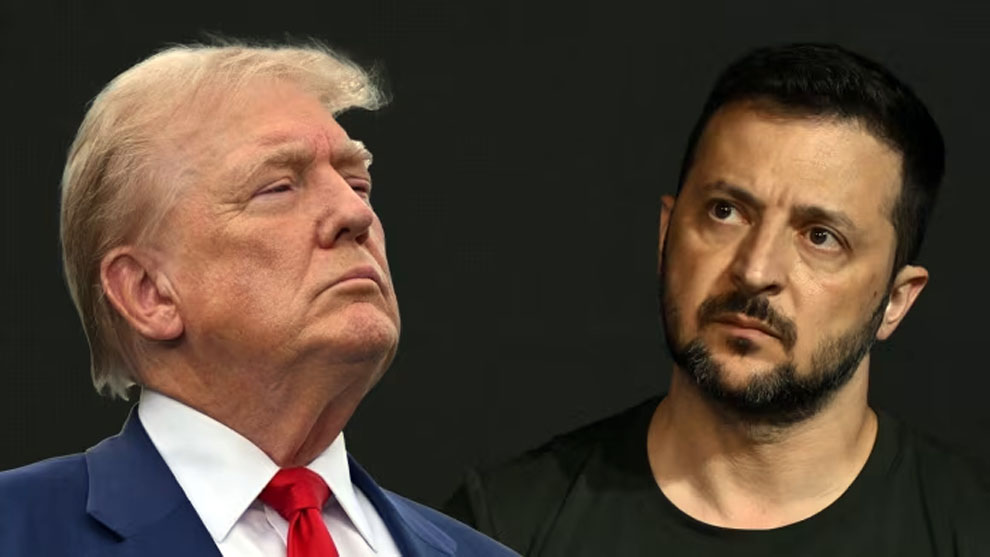
Russia Intensifies Airstrikes on Ukraine as Zelensky, Trump Envoys Advance Peace Talks
Russia has intensified its overnight aerial attacks on Ukraine, striking multiple regions just hours after President Volodymyr Zelensky described his discussions with Donald Trump’s negotiating team as “very constructive.” The renewed assaults come amid a fresh push for a US-led peace framework aimed at ending the nearly three-year-old war.
The mayor of Kremenchuk, a key industrial city in central Ukraine, confirmed the area suffered a “massive combined strike”, damaging critical infrastructure and leaving residents without water, electricity, and heat. No fatalities have been reported so far.
Russia’s defence ministry claimed it intercepted 77 Ukrainian drones across several locations during the same period, underscoring the ongoing intensity of the conflict despite diplomatic efforts.
Zelensky said he is “determined” to continue working closely with the US after three days of detailed negotiations in Miami involving Trump’s envoy Steve Witkoff and the former US president’s son-in-law Jared Kushner. Talks focused heavily on ensuring Russia’s compliance with any future peace agreement.
READ ALSO:
- 25 Dead in Goa Nightclub Fire After Suspected Gas Explosion in Arpora
- Doctor Charged With Sexually Assaulting 38 Patients in West Midlands Hospitals
- Shettima Inaugurates Multi-Million Naira Juma’at Mosque in Gumel
The US has been mediating a multi-point peace plan, though progress remains limited as Kyiv, Moscow, and European allies differ on key proposals. European leaders have pushed for additional security guarantees for Ukraine, including the possibility of a multinational peacekeeping force, an idea Russia has rejected.
French President Emmanuel Macron, UK Prime Minister Sir Keir Starmer, German Chancellor Friedrich Merz, and Zelensky are set to meet in London on Monday to coordinate Europe’s position on the evolving peace framework. Macron reiterated France’s commitment to achieving de-escalation and a ceasefire.
Meanwhile, the US and Ukraine have jointly urged Moscow to demonstrate “a serious commitment to long-term peace.” The appeal came after Witkoff returned from Kremlin talks with Vladimir Putin, which ended without a breakthrough.
Ukraine’s new chief negotiator Rustem Umerov said he and Witkoff have “agreed on the framework of security arrangements” and discussed deterrence measures needed to secure a durable peace.
The latest wave of Russian airstrikes — following a wider barrage a day earlier condemned by European leaders — underscores the gulf between diplomatic negotiations and realities on the ground as the war grinds on.
Russia Intensifies Airstrikes on Ukraine as Zelensky, Trump Envoys Advance Peace Talks
BBC
International
25 Dead in Goa Nightclub Fire After Suspected Gas Explosion in Arpora
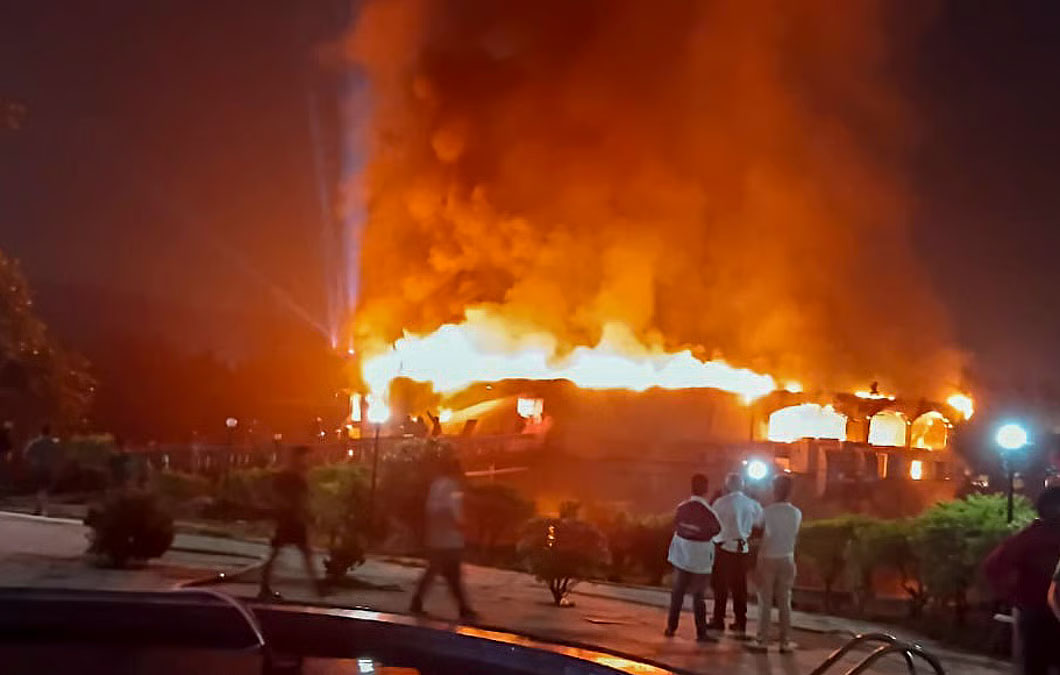
25 Dead in Goa Nightclub Fire After Suspected Gas Explosion in Arpora
A devastating inferno at a popular nightclub in Goa has left 25 people dead, with authorities confirming that most of the victims were employees of the establishment located in Arpora, North Goa. Several tourists are also among the casualties.
Officials say the blaze, which erupted around midnight on Saturday, was triggered by a suspected gas cylinder explosion in the club’s kitchen. The fire quickly tore through the premises, leading to scenes of panic in the bustling nightlife district.
Goa Director General of Police Alok Kumar confirmed that the fire was concentrated on the ground-floor kitchen area and has since been brought under control. Most bodies were recovered near the kitchen, reinforcing concerns that staff members bore the brunt of the tragedy.
Goa Chief Minister Pramod Sawant stated that three victims died from burn injuries, while others succumbed to suffocation. He also revealed that “three to four” tourists had been confirmed dead, though their identities and nationalities remain unknown.
According to The Indian Express, the incident occurred at Birch by Romeo Lane, a well-known club near Baga Beach, one of Goa’s busiest tourist hubs. The area is lined with nightlife venues that typically draw large crowds on weekends.
READ ALSO:
- Doctor Charged With Sexually Assaulting 38 Patients in West Midlands Hospitals
- Shettima Inaugurates Multi-Million Naira Juma’at Mosque in Gumel
- Police Launch Special Enforcement Team to Enforce Tinubu’s Ban on VIP Escorts
Witnesses described chaotic moments as screams filled the air moments after the explosion. One bystander told the BBC: “It was a normal Saturday night. Suddenly there were screams, and then we realized a massive fire had broken out. The scenes were horrific.”
Fire crews worked through the night, combing through charred debris to determine the full extent of damage and finalize victim identification. The remains of burnt furniture and décor were visible at the site on Sunday morning, now sealed off by security officials.
Victims’ bodies have been transferred to Goa Medical College in Panaji, where identification is underway before notifying families.
Chief Minister Sawant has ordered a formal inquiry into the cause of the blaze, promising that “those found responsible will face the most stringent action.” He expressed “deep grief” and extended condolences to affected families.
Indian Prime Minister Narendra Modi described the incident as “deeply saddening”.
Goa, a former Portuguese colony famed for its beaches, nightlife, and resorts, attracts millions of visitors annually. Government figures show 5.5 million tourists visited the state in the first half of the year, including 270,000 international travelers.
The tragedy adds to a growing list of fatal fires in entertainment venues across India, including recent incidents in Hyderabad, Kolkata, and Gujarat, often linked to poor safety standards and overcrowding.
25 Dead in Goa Nightclub Fire After Suspected Gas Explosion in Arpora
BBC
-

 Sports2 days ago
Sports2 days ago2026 FIFA World Cup Draw: England Draw Croatia as Brazil Face Morocco in Tournament Opener
-

 News2 days ago
News2 days agoAkpabio sues Natasha for ₦200bn over sexual harassment allegations
-

 metro3 days ago
metro3 days agoTinubu Govt Eliminates More Terrorists Than Previous Administrations — Fani-Kayode
-

 Politics2 days ago
Politics2 days agoOsogbo Youth Group Condemns APC Over Disqualification of Adegoke SAN
-

 metro1 day ago
metro1 day agoNigerian woman sparks outrage for refusing chemotherapy despite ₦30 million donations over religious Beliefs
-
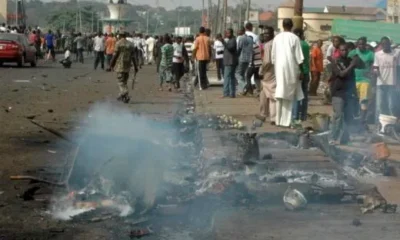
 metro2 days ago
metro2 days agoFour Teenagers Killed in Banki Explosion as Borno Police Probe Deadly IED Blast
-
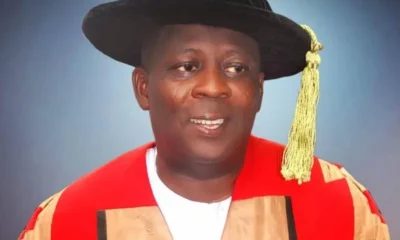
 Opinion3 days ago
Opinion3 days agoSiyan Oyeweso: Lessons in virtue and vanity
-

 Entertainment3 days ago
Entertainment3 days agoDStv warns subscribers of possible loss of CNN, discovery, 10 other channels in 2026





